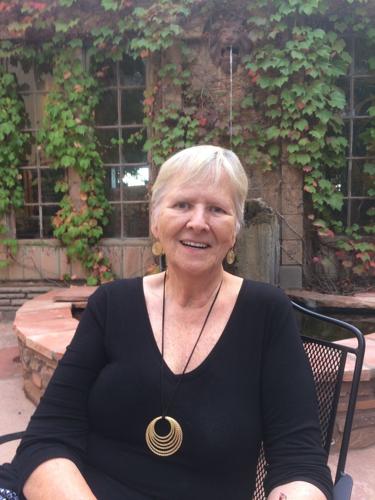The University of Arizona recently received $1 million of a $2.4 million endowment grant for its Osher Lifelong Learning Institute, a program that attracts some 1,200 older adults to classes for the pure joy of learning.
Lifelong learning for personal fulfillment is aimed at students age 50 on up who attend non-credit classes on campuses and at community sites throughout the Tucson area.
“Students come from all walks of life and their average age is in the late 60s, early 70s, and there are some in their 90s who volunteer and help teach classes,” said Scott Aldridge, the institute’s program manager.
One of those students is Meg Hovell, who only admits that she is in her 70s, and proudly says she has been attending classes for nine years because “curiosity never retires.”
Hovell retired from IBM after working there for 30 years, climbing the ladder as an engineer on up to director of product development. She now is president of the institute’s UA board of directors.
As a student of the institute, Hovell has explored writing poetry and enrolled in a history class, Case Studies of Democracies, and a literature class, Reading the New Yorker, followed by intense discussions.
The institute also benefits from retired professors who come to Tucson for the winters and volunteer to teach classes.
“They have told us that our audience is much preferable to undergrads who are on their iPhones and whose only question is, ‘Will that be on the test?’” recalled Hovell.
Technology classes are popular and include lectures on finding answers to such topics as bitcoin, or learning everything there is to know about smartphones, including how to take the best photos.
Other class topics include the sciences, business, history, art, music and the humanities.
Most of the classes are lectures with interactive discussions, and there also are field trips to restaurants and jazz nights.
Students also get involved by giving back to the community, including volunteering with organizations such as the Community Food Bank of Southern Arizona.
For many seniors living alone, “It is fun to get out of the house and enjoy the opportunity to meet people in a structured setting where you find common interests and establish friends,” said Hovell. She said of the 1,200 members, at least 500 volunteer by either leading a class in discussion, making sure equipment is working for the instructor or also making the event a social gathering.
The annual fee to become a member of the institute ranges from $150 up to $350, much depending on the courses offered.
A new after-hours, six-week pilot program will start Feb. 13, and an informational meeting will be held Jan. 27 at 10 a.m. at the Central Campus, 4485 N. First Ave. More information is available at www.olli.arizona.edu
About the endowment to the institute at the UA, Osher Foundation President Mary Bitterman, said, “We recognize that the program’s success represents the collective achievement of its excellent staff and dynamic community of intellectually vigorous members who give generously of their time and talent.
“We applaud, too, the university’s leadership for its support of the institute and for embracing the notion that — at its best — education is a lifelong pursuit that has the power to elevate, delight and forge our connection to one another and to a larger world,” said Bitterman.
Philanthropist Bernard Osher founded the foundation in 1977 to improve the quality of life through support for higher education and the arts, according to the foundation’s website. More than 120 institutes operate on university and college campuses across the country.





